Treatment for Benign Prostatic Hyperplasia in Germany
Best hospitals and doctors for benign prostatic hyperplasia (bph) treatment in Germany
Leading hospitals
Cost for treatment












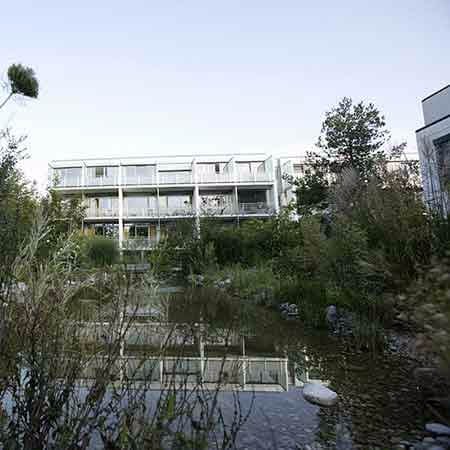



































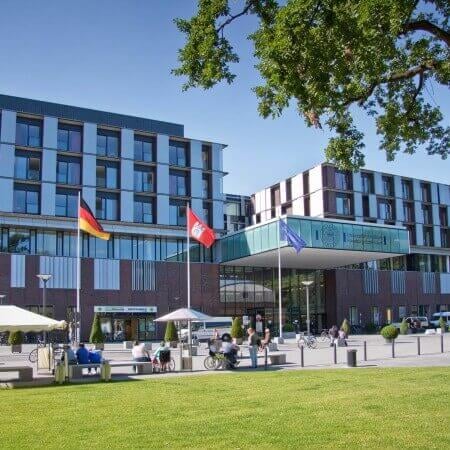





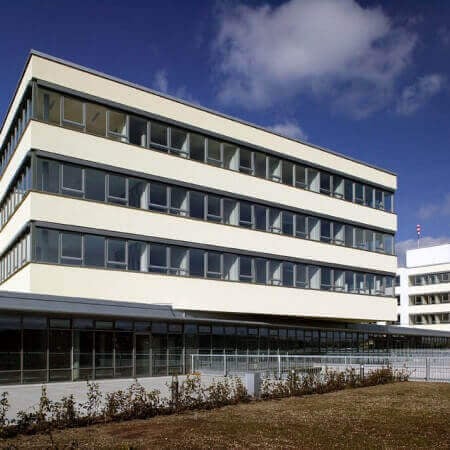











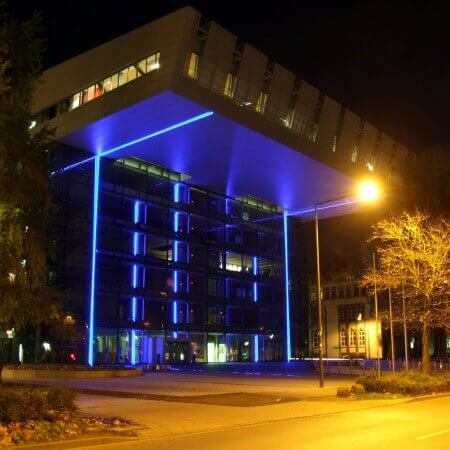











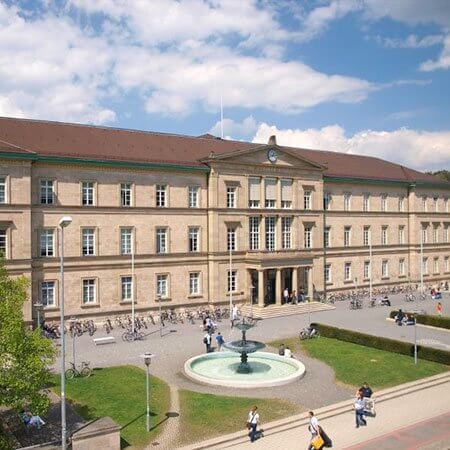





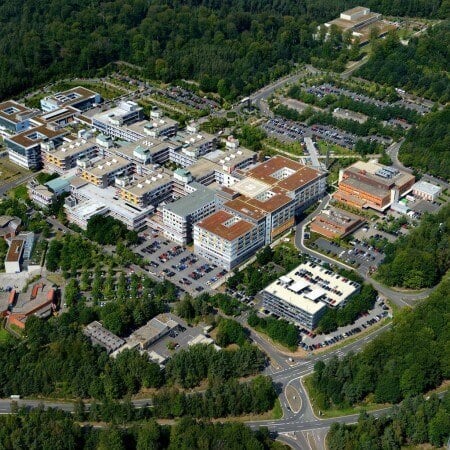


In dangerous cases of benign prostatic hyperplasia (BPH), the decision on therapy should not be delayed. This can include surgical methods or the latest developments of German scientists in the form of interventional therapy. The latter stops the very root cause of the hyperplastic overgrowths of the prostate gland. The treatment of urological diseases in Germany is characterized by the possibility of non-surgical methods of problem solving.
Content
- What does BPH mean?
- What causes the development of benign prostatic hyperplasia?
- Symptoms of BPH
- Treatment tactics
- Options for surgery
- Transurethral resection of the prostate
- Complications of untreated BPH
- Prognosis for patients with BPH
- Best German hospitals for treatment
- The cost of treatment in Germany
- Treatment in Germany with Booking Health
What does BPH mean?
Statistics in urology show that benign prostatic hyperplasia (BPH) is detected in almost half of men over 50. Medicine has proved that the development of benign prostatic hyperplasia (BPH) is somewhat age-dependent.
Although it is a completely benign mass that is not necessarily justified to be called prostate cancer, it nevertheless tends to grow. As the tumor grows, the gland itself enlarges. Benign prostatic hyperplasia (BPH) aggravates urination impairment because the channel through which the urine passes is compressed. Therefore, there is discomfort when urinating, as this process requires more muscle tension in this health condition.
What causes the development of benign prostatic hyperplasia?
Causes for occurrence of the health condition are insufficiently researched. Nevertheless, numerous studies in this field have proven that hormonal changes that start when men age 45-55 years and are being called the "male menopause" give a way for a pathology to develop.
This is caused by the prostate gland gradually enlarging and the increased tone of the smooth muscles of the bladder neck, resulting in compression of the urethra and narrowing of its lumen. Another important reason is the weakening of the bladder muscle contractility, which is mainly caused by the worsening of its blood supply.
At the initial stage of the pathology, urination is complete, does not cause any discomfort and no kidney damage is detected. At the final stage, the patient has "residual urine" (incomplete emptying of the bladder after urination), resulting in the formation of stones in the bladder. Against the background of impaired urine outflow, the ureters and renal pelvis gradually become distended, in which there is chronic inflammation – pyelonephritis. In the absence of adequate treatment for benign prostatic hyperplasia (BPH), in the final stages, chronic renal failure develops, which is life-threatening for the patient.
Symptoms of BPH
The occurrence of the pathology is accompanied by a number of clinical signals that are somewhat similar to the manifestation of prostate cancer, which can be roughly divided into two groups: irritative and obstructive. The first group of symptoms includes frequent, persistent urge to urinate, with occasional night episodes of urinary incontinence. Obstructive symptoms include difficulty in urination, feeling of incomplete bladder emptying, urine excretion in an intermittent thin stream or drops. Thus, the main clinical manifestation of prostate adenoma is impaired urination in one form or another. In the early compensated stage, patients have only minor phenomena of dysuria, which may remain unnoticed for a long time.
As the adenoma progresses, urinary disorders become more pronounced. At the subcompensation stage, the hypertrophy of the bladder muscular layer is replaced by degenerative changes of its walls, which gradually leads to organ dysfunction, the development of renal disorders, and finally to chronic renal failure.
If treatment of the prostate at the first two stages is not undertaken, the disease develops into the last, decompensated stage that is accompanied by symptoms of severe chronic kidney failure such as thirst, polyuria, bladder overflow and inability to urinate that is associated with frequent urge to urinate. Lack of treatment of patients currently at the third stage can rarely pose a threat for prostate cancer, but the development of chronic intoxication of the body with products of impaired urinary metabolism is a likely outcome.
Treatment tactics
Urology does not propose direct indications for surgical treatment for all patients with BPH. The condition, unlike prostate cancer, does not metastasize to other organs. However, as it grows, the adenoma begins to press the surrounding structures, first of all, the urethra, which leads to violation of the outflow of urine. Also quite often there is the prostate tissue overgrowth inside the bladder, leading to similar consequences.
One of the widespread and accessible therapies for BPH treatment is drug therapy. Specialists in urology use the well-known all over the world effective preparations, which influence the function of the prostate gland and help to get rid of urination disorders. Also, conservative treatment is aimed at reducing prostatic hyperplasia, relieving pain and other symptoms.
Options for surgery
Surgical treatment can be conducted in several ways that imply adenomectomy, transurethral resection of the prostate, cystostomy, and artery embolization.
Adenomectomy implies complete removal of the prostate gland. It is performed by laparoscopic and open methods. It is used in complicated cases for large-sized adenomas and existing complications. The incision is made in the wall of the bladder. The method is traumatic and rarely used.
Transurethral resection is one of the most common surgical methods used at the German hospitals. This minimally invasive intervention is conducted with a loop electrode and high frequency electric current. The resectoscope uses the loop to excise adenoma tissue. This technique is associated with practically no recurrence. The patients take bed rest for a day, and in a couple of days they are discharged from the hospital. Doctor also establishes a diet regimen with the patient, that he has to follow for a couple of weeks.
In specifically complicated, neglected cases of prostatic hyperplasia (BPH), if there are no alternative ways to solve the problem, but it is necessary to ensure the outflow of urine, a drainage tube is installed during cystostomy. This palliative care is applied in inoperable cases.
Embolization, in turn, is minimally traumatic intervention for therapy of benign prostatic hyperplasia. It consists of embolization or occlusion of the vessels that feed the organ. A drug is pumped to block the arteries using a microcatheter. This is considered a very effective procedure that is performed under local anesthesia, but requires specific qualifications and skills of an endovascular surgeon, as well as special equipment.
Transurethral resection of the prostate
The tactics for the management of the health condition is influenced by the stage the condition is detected at. The tumor detected at an early stage is amenable to therapy with medication. If the stage does not allow for drug therapy, treatment with surgery is carried out either transurethrally or laparoscopically. A more technologically advanced method is laparoscopic adenomectomy, where excessive tissue is removed through puncture wounds or incisions up to 10 mm in diameter.
Advances in medicine have created a means of restoring the urine outflow along the natural route through stents. A stent is hard when squeezed, but relatively elastic element, which implies a spiral tube with a tight winding of coils. Stenting is not a treatment for the disease, but it does allow the patient to fulfill the natural needs without compromising the quality of life.
Stenting the urethra at the point of compression by an enlarged prostate includes the restoration of the lumen of the urethra by inserting a stent, a framework that protects the urethra from the surrounding tissue at the site of the prostate overgrowth.
Complications of untreated BPH
If the problems caused by an enlarged prostate and a present adenoma are left untreated, the man's health condition worsens greatly. Stagnant urine leads to the intoxication of the body, provokes the formation of bladder stones and kidney stones. There is pain that radiates to the glans penis. It intensifies with walking and standing. When lying down, the pain decreases.
There may also be a variety of infectious diseases like chronic prostatitis, urethritis, pyelonephritis, and others.
If benign prostatic hyperplasia (BPH) is not treated, kidney failure, constipation, vomiting, weight loss and anemia develop.
Often patients complain about lack of sleep and frequent, sometimes futile, nightly attempts to urinate. Besides, total urinary retention is possible even at the initial stage. In this case, an urgent surgery is needed.
Prognosis for patients with BPH
Lack of timely care increases the risk of inflammatory process dynamics, deterioration of general health condition, and well-being of a man. The recurrent stage of the disease is more difficult to treat and can be life threatening for the patient.
How sufficient the therapeutic measures will depend not only on the method used, but also on timely diagnosis. At the early stage, prostate adenoma is more amenable to treatment.
Positive changes can be observed in a few months after the start of therapy. At later stages, the pathological process can develop into a chronic form, which complicates not only the diagnosis, but also the treatment.
Best German hospitals for treatment
The medical standard is equally high in all of Germany. Whichever region of Germany you go to for treatment, you will receive diagnostic and therapeutic services that meet the generally high German standard. Since prices for treatment in Germany are subject to the uniform government regulation for calculating the cost of treatment for each patient, all patients receive the same high standard of medical care in German hospitals, regardless of their social status or country of residence.
Many German specialists and specialized medical centers focus on interdisciplinary cooperation. With that said, the top-rated German hospitals for the treatment of benign prostatic hyperplasia (BPH) are listed on the Booking Health website. Therefore, if you would like to find the right hospital for you, contact Booking Health for the qualified assistance.
The cost of treatment in Germany
The average prices for procedures for the treatment of benign prostatic hyperplasia (BPH) in German hospitals are listed below:
- The cost of treatment with transurethral resection starts at 4,065 EUR.
- The cost of treatment with prostatectomy starts at 4,013 EUR.
- The cost of treatment with transurethral needle ablation starts at 4,001 EUR.
- The prices for general therapeutic rehabilitation start at 565, 57 EUR.
Even though Germany has a unified pricing policy with stable prices for medical procedures, in each clinical case, the prices are calculated individually based on the number and type of procedures required.
If you want to know what the cost of treatment for benign prostatic hyperplasia (BPH) is going to be like for you, contact Booking Health.
Treatment in Germany with Booking Health
It is no less important to the staff of Booking Health than to the patients themselves that treatment is as effective as possible, that help in organizing the treatment in Germany be professional, and that the patient's experience is the most positive one. It is this approach that enables Booking Health to be among the leading companies in the world supporting foreign patients seeking treatment in Germany.
We know how hard it can be for people battling with a specific health condition to deal with organizational nuances, while preparing mentally and physically for complex procedures. Booking Health takes upon itself all of the organizational issues, while you take your time to prepare for treatment and subsequent recovery.
To get started with treatment for benign prostatic hyperplasia in Germany, fill in the request form on the Booking Health website, and our medical advisor will contact you.
Authors: Dr. Vadim Zhiliuk, Dr. Sergey Pashchenko